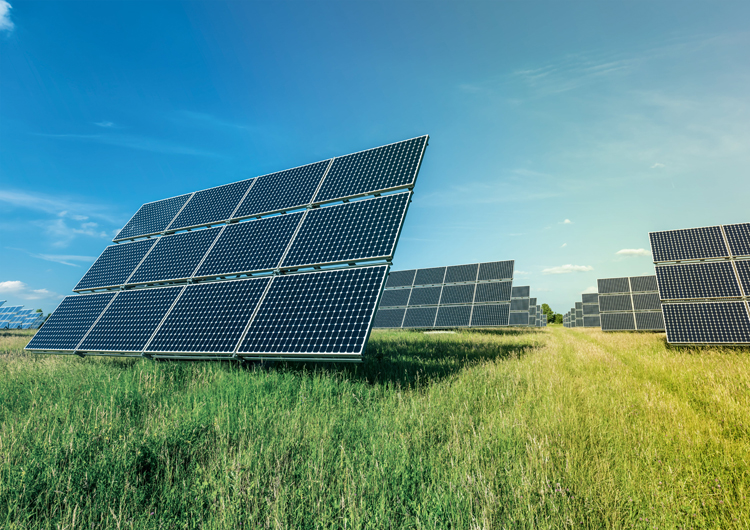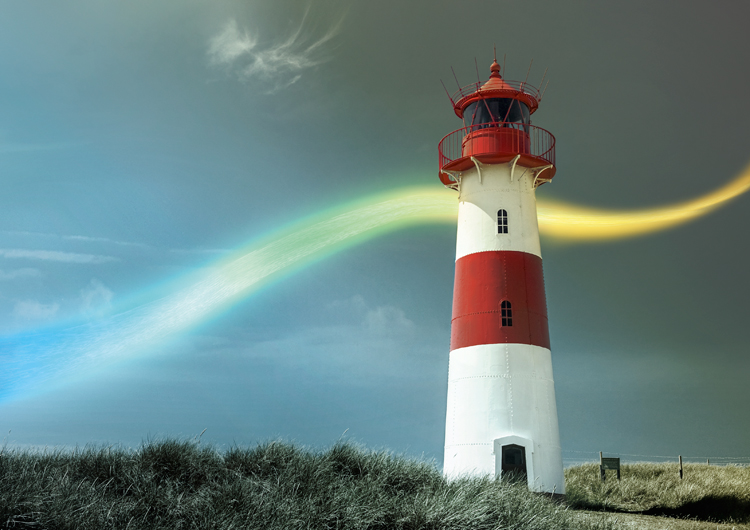The scope of services of M&P
- Fulfilment of legal obligations such as energy inspection in accordance with §12 EnEV, recurring energy audits or energy management systems – with added value through refinancing
- 360° energy potential check: the app to uncover hidden efficiency potential within companies
- Individual energy efficiency solutions for urban districts and properties
- Energy concepts with a clear focus on electromobility
- Future-proof energy concepts for municipal utilities in Germany – with components such as combined heat and power, biogas plants or absorbers for local cooling networks, as well as renewable energies such as wind turbines and photovoltaics
Solutions from M&P help ensure a healthy climate
The increase in global risks and the decreasing collective will to tackle them paint a dire picture of the state of the earth.
According to the World Economic Forum’s Global Risks Report, climate change poses a particularly great danger. For the first time, it has named three environmental problems as the most pressing challenges of our time: extreme weather events, failure of climate change mitigation and adaptation, and natural disasters. ‘Of all risks, it is in relation to the environment that the world is most clearly sleepwalking into catastrophe,’ the study says.
The energy transition is progressing too slowly
And yet, it feels as though we are doing so much. For some years now, there have been intensive climate protection initiatives, not only in Germany. Energy management, energy audits, EnEV inspections, energy consulting for small and medium-sized companies, a whole host of funding programmes and much more. But where are the results?
The German Federal Republic’s target of reducing energy consumption by 20% from 2008 to 2020 and by as much as 30% by 2030 is likely to be missed by a considerable margin, as the President of the Federal Office of Economics and Export Control (BAFA) recently noted.
And that is seriously bad news: if it is not possible to halve German energy consumption by 2050, the planned almost complete switch to renewable energies will not be achieved, as can be seen from the Federal Government’s Climate Action Programme.
One reason for the slow increase in efficiency is the low energy prices. In addition, we find in our consulting projects that methods to increase energy efficiency are often not widely known. Our customers have a large number of daily tasks to take care of urgently, so energy saving tends to be neglected purely due to lack of time.
The starting point for any form of energy efficiency is the fulfilment of legal requirements.

M&P derives added value from legal obligations
Legal obligations such as energy inspections in accordance with §12 EnEV, recurring energy audits or energy management systems all have the same aim: to reduce the final energy demand in Germany. Nevertheless, efficiency increases in the country seem to have come to a standstill. While minor progress has been made in renewable energy generation, final energy consumption in Germany has been trending upwards again. This may be an effect of the booming economic phase in the industrial sector. But don’t boom phases, thanks to the comfortable financial situation they bring, usually lead to investments in the future? Financial commitment to energy efficiency should be part of that. So why are those investments not being made?
There is no reason to capitulate in view of the targets of the German government. For years, M&P has stood by the belief that 30% savings in the energy sector are possible in almost all companies and households. The first 10% comes from efficient energy procurement, a further 10% is achieved in energy conversion by optimising system technology, and the last 10% through optimising energy requirements, for example by adapting user behaviour. The goal of reducing Germany’s energy consumption by 30% by 2030 is thus entirely realistic.
A voluntary approach powers the energy transition
Although energy consumption in Germany is rising again, M&P has not seen a downward trend in private investment in the energy sector. But there has been a shift: from voluntary investments to the fulfilment of legal obligations. The latter are becoming more and more extensive and tie up financial resources that used to be spent voluntarily and in a more targeted manner. M&P has carried out well over 2,000 inspections of ventilation and refrigeration systems in accordance with §12 EnEV – 1,500 of them in the last three years – and identified over 10,000 optimisation measures. In addition to that come energy audits, which are due for many companies in Germany in 2019, and the maintenance of energy management systems. All these instruments are legally binding and require extensive effort to implement, but often do not save a single kilowatt-hour. Why? Only the identification of potential is mandatory. Generating added value from these instruments – i.e. implementing measures that pay for themselves and the compulsory element – on the other hand, is voluntary.
Every efficient energy audit or competent inspection in accordance with §12 EnEV identifies low-hanging fruit, i.e. measures that can be implemented with little or no investment. The costs are often lower than those for the inspection. And the measures introduced soon pay for themselves. That means genuine financial and ecological added value can be gained from costs that would have been legally required in any case.
M&P stands by its statements and measures and provides support when things become technically complex, seemingly risky or time-consuming in the details – and even guarantees success in cases of doubt. And that means the energy targets for 2020 and 2030 are nowhere near as unrealistic as they currently seem. We are convinced of that. And it is out of deep conviction that we develop solutions for customers who no longer want to bury their heads in the sand.
Focus on climate change: M&P carries out the 360° energy potential check
With that in mind, we have developed the 360° energy potential check on the basis of a proven analysis tool. As a smart app, it enables our efficiency experts to work with a customer to uncover the hidden potential in their company.
All fields of action that have an influence on energy efficiency are scanned, and potential is identified and commercially evaluated.
The first ‘examination’ of your property takes just one day – at the end of which we can offer a valid statement regarding the ‘health status’ or a possible ‘healing plan’ to increase the energy efficiency in your building.
Ready to save the world? Simply click the following link for more information and to apply for your test access.
Product flyer – 360° energy potential check
And if you like, we could soon be making an important joint contribution to achieving Germany’s climate protection goals: with the 360° energy potential check.

Large-scale solutions for climate protection
It is not only in individual buildings, but also in urban districts and properties, and even entire cities, that the M&P team is driving the energy transition forward. We develop solutions that meet the requirements of operators, users and legislators – because they are specifically tailored.
One thing is clear – we can already say with certainty that no ONE solution will succeed for the next 50 years. Future-proof concepts for the energy transition, almost without exception, must be customised and require intensive consultation.
We work with the experienced engineers of our energy team to develop a detailed system concept with various solutions to suit the size and targets of the relevant customer and turn it into reality with our engineering team. This is followed by tracking and monitoring of the system technology in operation. In this way, we ensure that the targets defined at the beginning are achieved over years and not just at the point of commissioning.
Sustainability means independence
Our experience over the last 30 years has shown that the future-proofing of energy concepts is closely linked to energy independence.
Establishing this independence and guaranteeing it in the long term is a core goal of our work. In current projects, for example, we are designing several urban districts with a clear focus on electromobility and energy supply that is as self-sufficient as possible. The idea is to link various renewable and fossil energy producers and store their energy in such a way that as little CO2 as possible is produced. The experience of the M&P e-vehicle fleet and M&P E-mobility GmbH are helpful in this endeavour. Our close contact with Ostfalia University of Applied Sciences in Wolfenbüttel also gives us access to the state of the art in terms of the technology of smart grids, which also brings huge advantages.
Tackling the energy transition on a large scale
However, we also look at the energy transition in an even larger context: for example, we are accompanying a Danish investor on his path to the energy transition. We have been tasked with creating future-proof energy concepts for several municipal utilities in Germany. Our solutions include classic components such as combined heat and power, biogas plants or absorbers for local cooling networks, as well as renewable energies such as wind turbines and photovoltaics. The ‘big’ solutions also include the latest technologies – such as the power-to-gas application to convert surplus energy and the use of large battery storage systems.
On a larger scale, it is particularly evident that a sustainable regenerative solution needs to be supported by several pillars. With our current projects, we are proving that M&P’s great strength lies in customer-specific selection and combination of individual technologies. Playing a positive role in shaping such a crucial decade for the energy transition, with everything from small to very big solutions, makes us proud and motivates us to do more.
